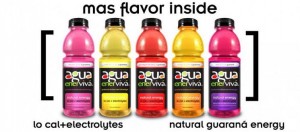‘Psychoactive’ drinks for brain health increasing globally

The ‘psychoactive’ drinks market for adults is “exploding”, as naturally derived ingredients from fruit, plants and roots prove to have an impact on cognitive health, according to market research organisation Canadean.
Karin Nielsen, Director of the Ingredients Division at Canadean, said some properties of fruits, plants or roots such as ginseng, blueberries and chamomile “have a positive impact on cognitive health.”
“For example, properties from Panax Ginseng, a root naturally occurring in Asia, appear to fight idiopathic chronic fatigue,” Ms Nielsen said.
“Blueberries are said to be antioxidants with anti-inflammatory effects, while also reducing depressive symptoms,” Ms Nielsen said. “Scientists also found that the polyphenol and apigenin naturally found in chamomile, the passionflower and to some extend in the sin citrus fruits can have a positive effect on people suffering from depression and anxiety,” she said.
Economic burden caused by cognitive health issues
Ms Nielsen said the “extensive research on naturally occurring health remedies comes at a time when the economic burden inflicted by migraine patients is estimated at $17 billion, and 56 per cent of the US population is complaining about sleep disorders.”
“Moreover, 10 per cent of the European population suffers from GAD – generalised anxiety disorder – which inflicts a cost of € 11.6 billion on the economies in Europe,” Ms Nielsen said. “The cost of supplying the global population with antidepressants and psychotherapy drugs now exceeds $70 billion, revealing how urgent this search for preventative brain bioactive nutrients has become,” she said.
Natural and no additives key for psychoactive drinks
However, falling back on naturally occurring ingredients is not as easy as it sounds, according to Ms Nielsen.
“Our blood stream is the transport way for all nutrients and signal molecules, but there is a gate keeping track of what molecules are allowed to enter the brain space and impact the grey cells,” Ms Nielsen said. “This is a challenge for the food industry, as nutrients are modified during digestion, making it difficult to breach the blood-brain barrier,” she said.
For manufacturers of psychoactive drinks – beverage with substances that cross the blood-brain barrier – the focus has been on natural sources and no additives. US-based Agua Enerviva offers beverages with natural colours, flavours, caffeine and low sugar content.
“Targeting health-conscious consumers, the product pits itself against sugar saturated, stomach-churning energy drinks with scary ingredients and claims to be suitable for consumption at any time of the year,” Ms Nielsen said.
Canadean data has shown that the market value of food and drinks specifically bought for cognitive health purposes lies at $200 million – a relatively small, but growing market. For comparison, Canadean valued the global energy drinks market value at $40 billion in 2013.





